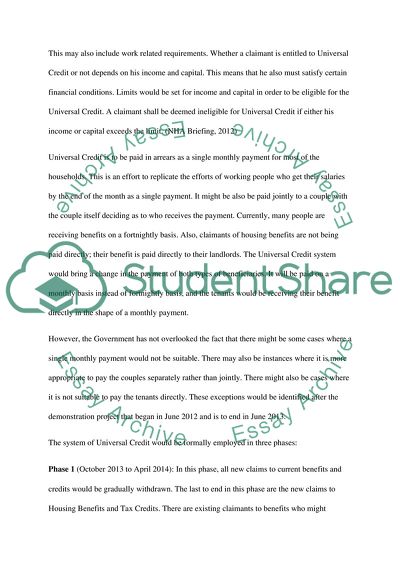Cite this document
(The Universal Credit Programme Report Example | Topics and Well Written Essays - 3250 words - 1, n.d.)
The Universal Credit Programme Report Example | Topics and Well Written Essays - 3250 words - 1. https://studentshare.org/sociology/1801134-what-are-the-social-and-economic-consequences-for-claimants-of-the-welfare-reform-act-2012
The Universal Credit Programme Report Example | Topics and Well Written Essays - 3250 words - 1. https://studentshare.org/sociology/1801134-what-are-the-social-and-economic-consequences-for-claimants-of-the-welfare-reform-act-2012
(The Universal Credit Programme Report Example | Topics and Well Written Essays - 3250 Words - 1)
The Universal Credit Programme Report Example | Topics and Well Written Essays - 3250 Words - 1. https://studentshare.org/sociology/1801134-what-are-the-social-and-economic-consequences-for-claimants-of-the-welfare-reform-act-2012.
The Universal Credit Programme Report Example | Topics and Well Written Essays - 3250 Words - 1. https://studentshare.org/sociology/1801134-what-are-the-social-and-economic-consequences-for-claimants-of-the-welfare-reform-act-2012.
“The Universal Credit Programme Report Example | Topics and Well Written Essays - 3250 Words - 1”. https://studentshare.org/sociology/1801134-what-are-the-social-and-economic-consequences-for-claimants-of-the-welfare-reform-act-2012.


